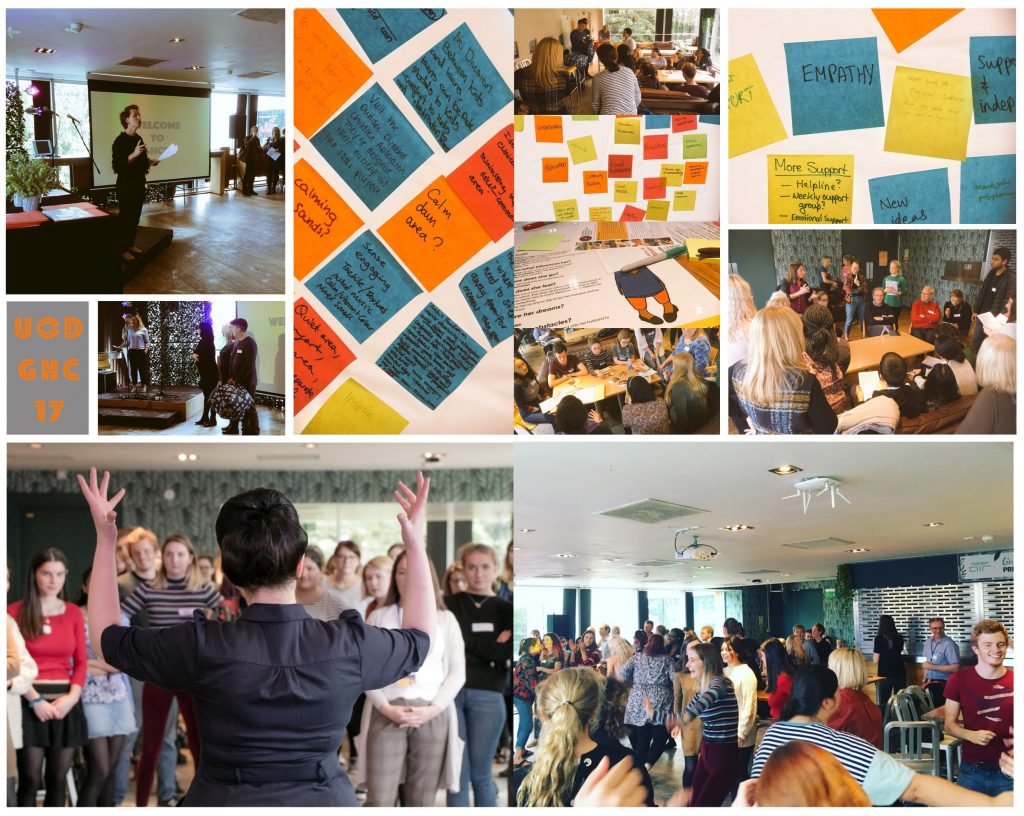“Create a Collaborative Mind-set”
– IDEO
As GHC17 problem solvers, you’ve been tasked in identifying insights and opportunities to bring about positive change for real people experiencing very real and complex issues. Key to the success of this will be teamwork.
Let’s look to IDEO co-founder David Kelly for some advice whilst working towards innovation as multidisciplinary teams:
- Every team member should be given the same amount of respect
- Take advantage of individual skill sets: throw egos out the window
- Embrace the opportunity afforded by bringing together people with different backgrounds and expertise – you’ll have more resources, insight, and experience to draw from
In other words, let’s create a culture of collaboration and recognise the strengths afforded to your teams brought by the various backgrounds and fields of your members. The next five weeks are yours to explore, discover and ideate and embracing the opportunity to do this together will really make your project sing.
Building on this thinking and echoing some of the advice shared by GHC16 winners Open Ears in our induction session, here are some final top tips from your GHC facilitators for successful teamwork:
- COMMUNICATE: Establish and use somewhere central, like Facebook or the GHC webmail platform to communicate with your group. Share where you’re at and discuss progress in between meetings.
- BE MINDFUL of the commitment you have made to the team. It is good professional practice to give this your full attention – if meetings are arranged, attend them.
- PROJECT PLAN & DELEGATE: Compile a task list – who does what and when?
- PREPARE for your final presentation. Make sure every team member is clear on their role within the presentation and collect and compile visuals to communicate your project well.
